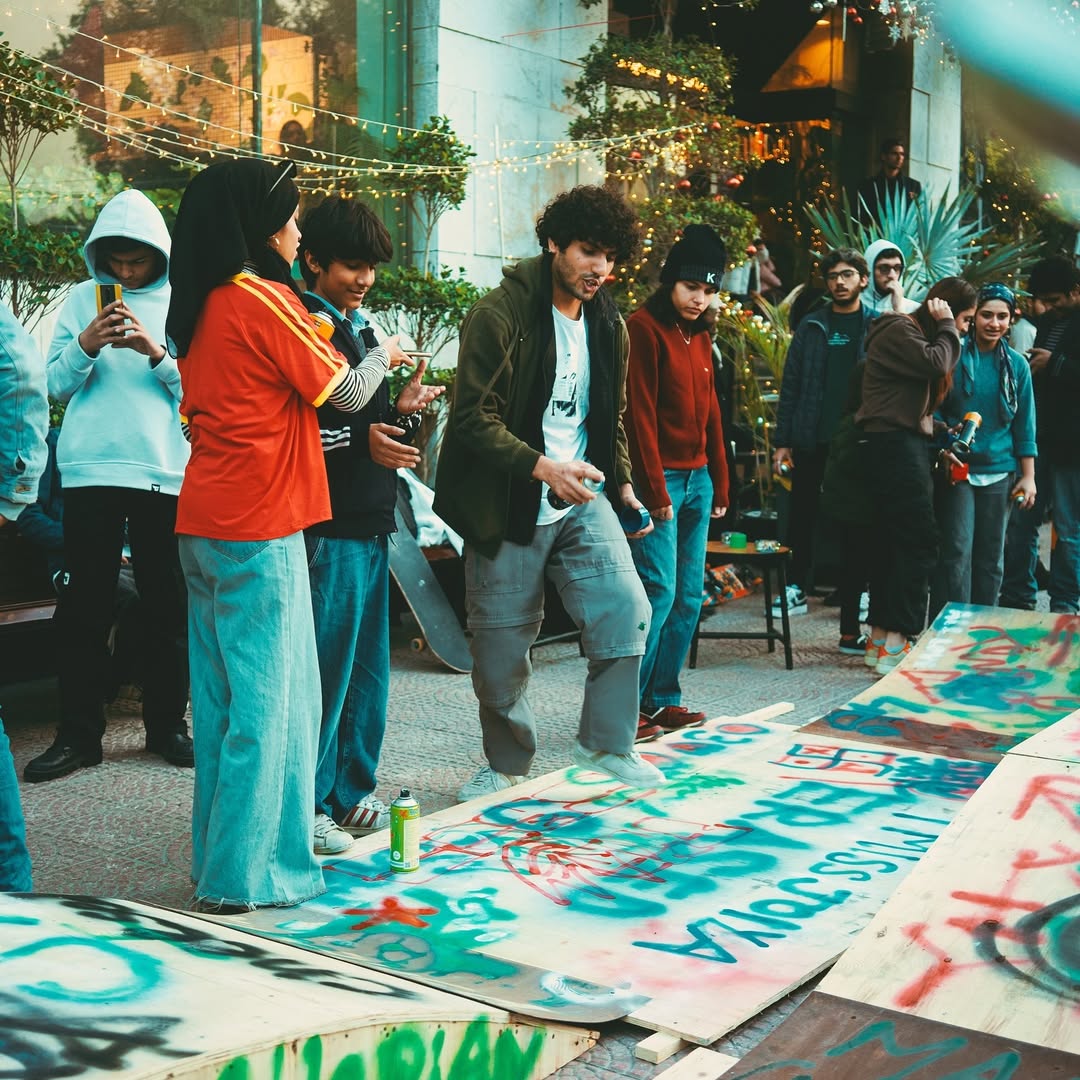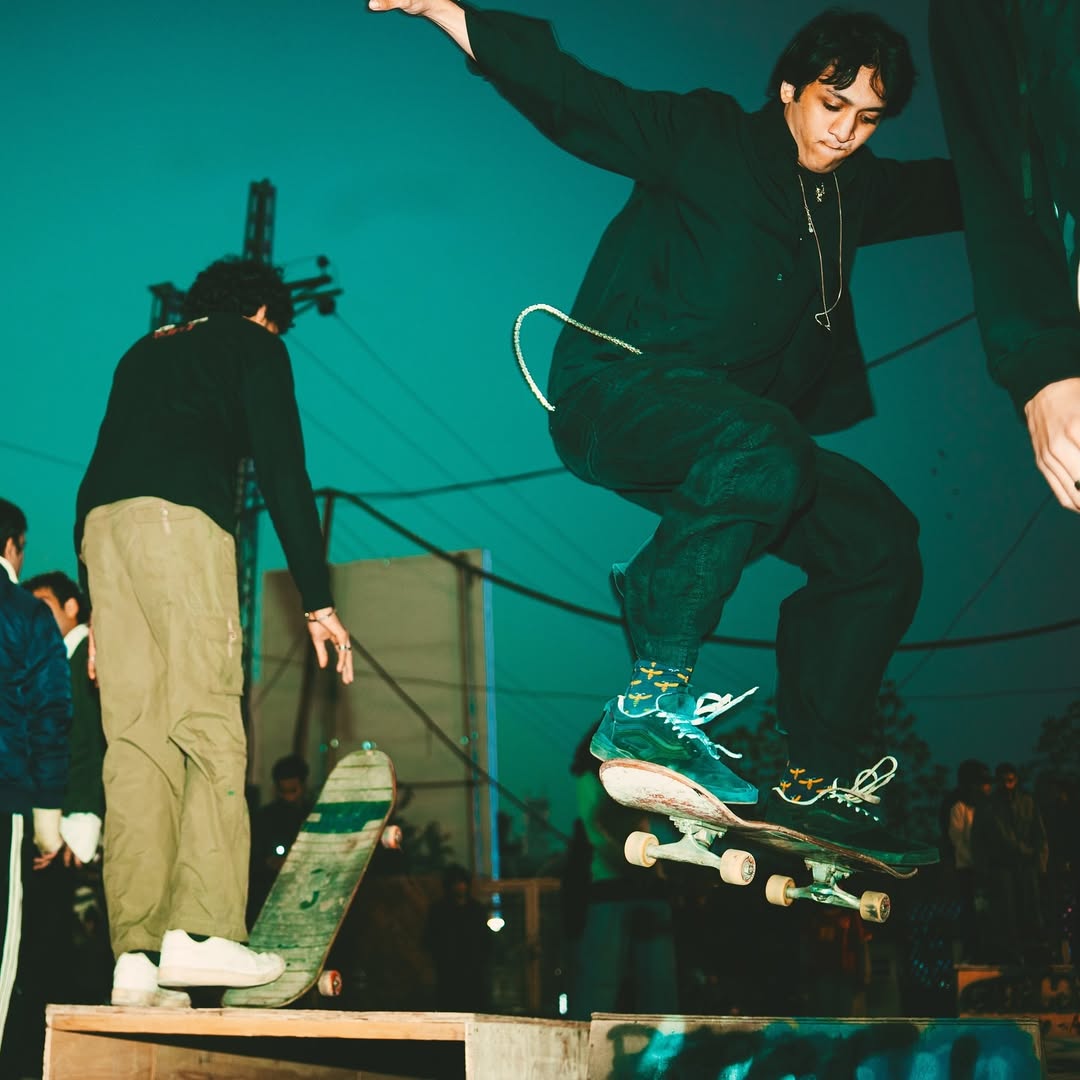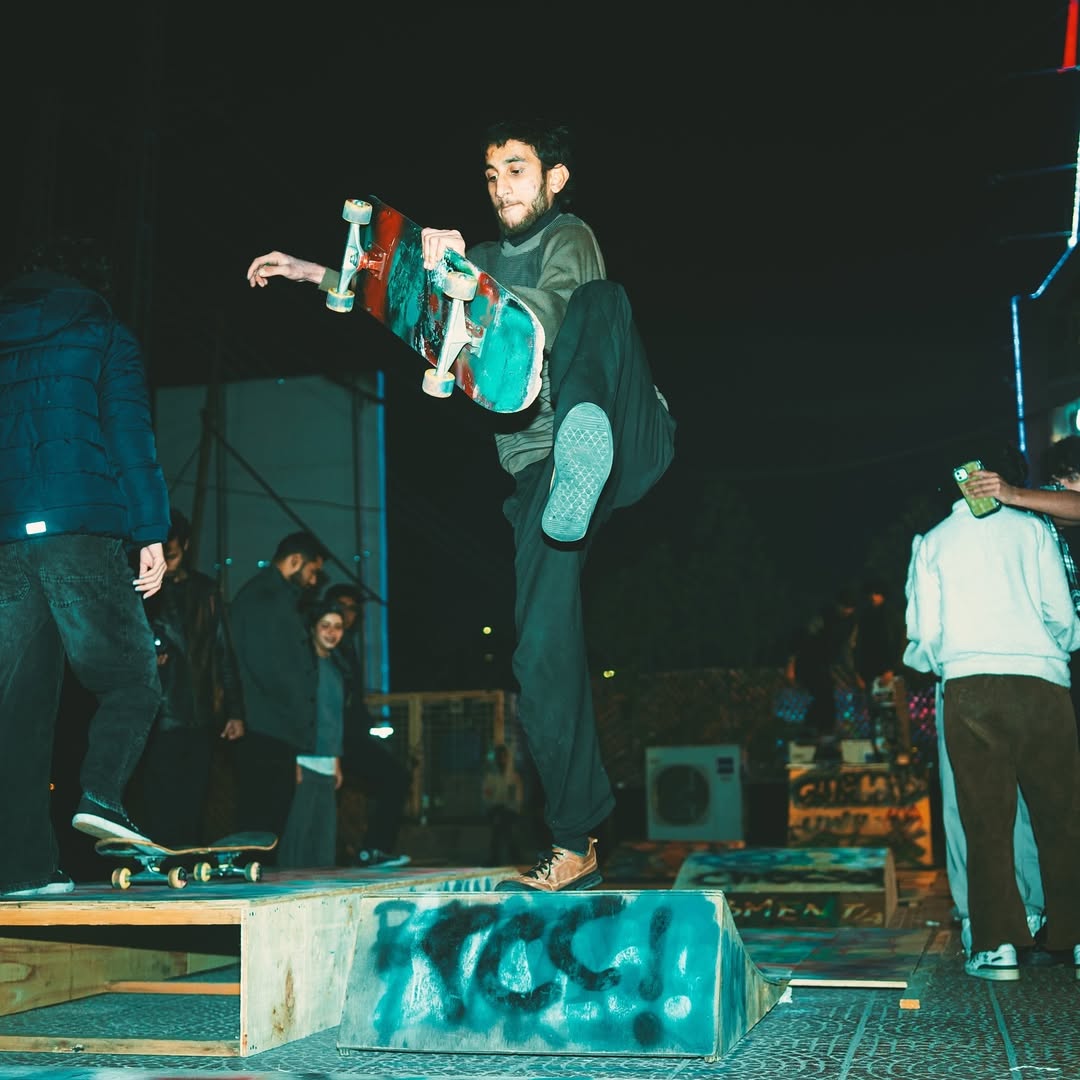ISLAMABAD: On a hot summer afternoon in IslamabadтАЩs F-9 Park, laughter echoed across the cracked concrete as teenagers cruised over curbs and kick-flipped their boards with casual defiance.
For this small but growing community of skateboarders in the Pakistani capital, the pavement is a playground тАФ and a protest.
Globally, skateboarding has long been associated with youth culture. It is a sport that thrives in urban settings and offers young people a sense of identity, freedom, and creative expression. Since its rise in the United States in the 1960s, it has evolved into a global movement, now part of the Olympic Games and supported by thriving communities from Brazil to Japan.
In this context, Pakistan is fertile ground for the growth of skateboarding тАФ a nation of over 240 million people where nearly 64% of the population is under the age of 30. But the country does not officially recognize skateboarding as a sport. Its official game is field hockey but cricket dominates pitches, TV screens and public discourse. Other sports like football, badminton and volleyball enjoy some government support but skateboarding remains entirely on the fringes.
тАЬThereтАЩs not even one dedicated skate shop in Pakistan,тАЭ said Ali Hamza, a 21-year-old engineering student who founded Skate Pakistan, a grassroots movement using Instagram to grow and connect the local skate scene. тАЬItтАЩs still seen by many as a toy.тАЭ

This photo, posted on December 20, 2024, shows a skateboarder riding his board in Lahore. (Photo courtesy: Instagram/@hamzahh9)
HamzaтАЩs Instagram page, started in 2021 тАЬjust to see if anyone else was skating,тАЭ soon connected him to others across Islamabad and beyond. Today, Skate Pakistan meetups attract 12тАУ15 regulars, with larger competitions drawing dozens. Most participants are teenagers with limited access to professional training or gear, and the initiative is driven entirely by volunteers and enthusiasts, growing into a fledgling community of teens and young adults passionate about the sport and eager to see it taken seriously.
HamzaтАЩs own introduction to skateboarding came through Hollywood films as a child. At the time, he assumed the aerial tricks were camera tricks.
тАЬHonestly, I used to think it was fake,тАЭ he said, laughing. тАЬLike, how can a board thatтАЩs not even attached to your feet fly up like that?тАЭ
Curious, he bought a cheap board from a local sports shop in 2019. With no coaches or skateparks in Islamabad, Hamza turned to YouTube tutorials and online courses to learn the basics.
тАЬMy first day on the board, my father was holding one arm and my brother held the other. I was just praying I wouldnтАЩt fall,тАЭ he said.

This photo, posted on December 20, 2024, shows skateboarders spray painting a board ahead of a competition in Lahore. (Photo courtesy: Instagram/@hamzahh9)
Fall he did and repeatedly. But with each tumble, he said, the fear wore off.
тАЬThe more I fell, the more this fear lessened.тАЭ
While Pakistan has a few modest skateparks тАФ including one in Skardu, Gilgit-Baltistan, and another set up with German NGO support in Karachi in 2020 тАФ most skateboarders still ride on sidewalks, underpasses, or abandoned lots.
Security guards at parks often ask them to leave. Potholes, rough terrain, and broken pavement pose daily hazards.
But the lack of infrastructure and support hasnтАЩt stopped the community from growing.
тАЬI mean, itтАЩs fun, itтАЩs something physical, youтАЩre out with your friends, so why not?тАЭ said Hasaan Khan, 16, a regular at the sessions held in IslamabadтАЩs F-9 park.
тАЬSkateboarding builds up your endurance, since you keep falling over and over again,тАЭ added Rija Mughal, also 16. тАЬItтАЩs pretty good for your physical health too.тАЭ
BUILDING A MOVEMENT
For many, skateboarding took off during COVID-19, when lockdowns closed schools and sports grounds.
тАЬI found an old skateboard at home during COVID, had nothing else to do, so I started riding around,тАЭ said Ahmed Ali Rana, who was 13 at the time. тАЬIt just clicked.тАЭ

This photo, posted on December 20, 2024, shows a skateboarder riding his board in Lahore. (Photo courtesy: Instagram/@hamzahh9)
Rana said he was nervous at his first Skate Pakistan competition but was surprised by how welcoming everyone was.
тАЬThatтАЩs the best part. ItтАЩs not just about the sport, itтАЩs about the friends and the community.тАЭ
Zayan Nadir, another teen skater, said skating gave him a mental escape:
тАЬIt helps people get away from their problems. But to build a bigger community in Pakistan, you need more skate shops, more skate parks, and more freedom for skaters.тАЭ
Currently, thereтАЩs no national or provincial skateboarding federation, and the Pakistan Sports Board does not include the sport in its list of recognized disciplines. In contrast, neighboring India has had multiple international skateboarding events and boasts over two dozen skateparks, including some that cater to underprivileged youth.
The inclusion of skateboarding in the Tokyo 2020 Olympic Games also helped raise its profile globally, particularly among younger audiences. Yet, in Pakistan, there is little official recognition, funding, or visibility.

This photo, posted on December 20, 2024, shows a skateboarder riding his board in Lahore. (Photo courtesy: Instagram/@hamzahh9)
Hamza said public perception also remained a big hurdle.
тАЬThereтАЩs still this idea that a skateboard is a toy, not a sport,тАЭ he said. тАЬThatтАЩs what we are trying to change through social media.тАЭ
At a recent meetup, teenagers practiced ollies and kick turns on a concrete ramp while others filmed slow-motion footage for Instagram reels. There were no referees, no medals тАФ just scratched boards, scraped knees, and smiles.
Hamza said the goal now was to push for formal recognition and better infrastructure so more young people across Pakistan could skate without obstacles тАФ literal or social.
тАЬWe just want people to see that this is serious,тАЭ he said. тАЬIt deserves space, support and respect.тАЭ
















